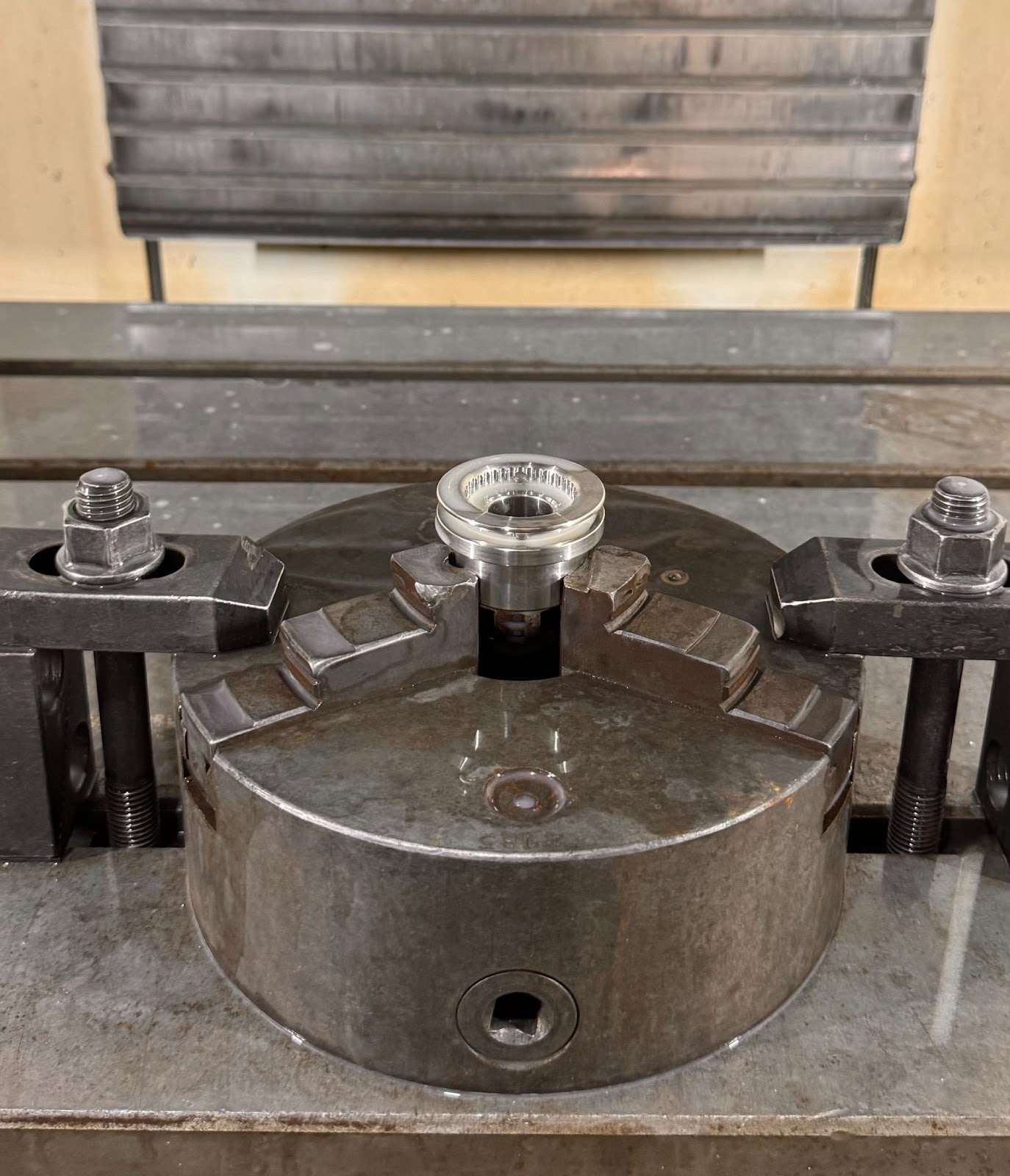Discover how custom manufacturing delivers tailored solutions across industries. From CNC machining to sheet metal, get precision-built parts that last.

Custom manufacturing is the backbone of modern industry. From precision sheet metal to CNC machining and welded assemblies, every sector relies on tailored solutions to turn concepts into functional, high-performance products. Off-the-shelf parts often fall short—true performance comes from designs built around specific tolerances, materials, and applications.
At Entag, we approach custom manufacturing with one clear goal: to deliver reliable, engineered solutions that meet industry-specific demands—whether in automotive, food processing, medical equipment, or consumer products.
Custom manufacturing bridges the gap between design and reality. Unlike standard catalog parts, custom solutions are built to match precise requirements:
This adaptability allows companies to reduce waste, improve durability, and optimize functionality.
Every custom manufacturing project faces hurdles. These challenges, if left unsolved, increase cost and lead time. Our role is to eliminate them upfront.
Many designs require intricate machining or multi-axis forming.
Our Solution: We combine 3- and 5-axis CNC machining with laser cutting and advanced forming tools, ensuring even the most complex profiles are produced accurately.
Choosing the wrong alloy or grade can lead to premature failures.
Our Solution: We guide clients through material selection, balancing cost, durability, and application performance—whether that means 316 stainless for corrosion resistance or hardened tool steels for high-wear components.
Prototypes may work, but scaling to production often exposes weaknesses.
Our Solution: We focus on process control and CMM quality inspection, ensuring consistent performance from the first unit to the thousandth.
For a regional automotive supplier, we manufactured 1,500 custom stainless steel bracket assemblies designed to support heavy vibration loads. The project required:
This project illustrates how custom manufacturing, when executed with precision, directly improves reliability and end-user satisfaction.
Learn more about our detailed process in Rubber Mold Manufacturing through this article.
When working with custom manufacturers or a specialized metal fabrication shop near me, choosing the right specifications for CNC machined parts is critical. Whether you are sourcing custom CNC machining for prototypes or custom sheet metal fabrication near me for large assemblies, these five considerations will help you achieve reliable, cost-effective, and durable results.
Different industries demand different materials. For example, stainless steel is ideal for food and medical applications, while aluminum offers lightweight strength for automotive. Always confirm with custom metal fabrication near me providers who can guide you on balancing durability and cost.
Custom CNC machining enables ultra-tight tolerances, but higher precision often increases costs. Discuss acceptable ranges early with your custom manufacturers to avoid unnecessary rework.
Finishes such as passivation, anodizing, or powder coating enhance durability and compliance. A reliable custom sheet metal fabrication partner can provide finishing options that align with industry standards.
If you only need a few prototypes, look for custom sheet metal fabrication near me shops that can handle low-volume runs. For scaling up, larger custom manufacturing facilities ensure consistency across thousands of units.
Whether working with private label manufacturers or specialized custom manufacturing services, make sure the provider follows ISO standards and offers CMM inspection to guarantee consistent quality.
By carefully evaluating these five factors, you can maximize the benefits of CNC machining while ensuring your parts are built to last.
When planning your next project, one of the most common questions is whether to choose custom sheet metal fabrication or custom CNC machining. Both methods offer unique advantages, and the right choice depends on your design, tolerance requirements, budget, and production scale.
For applications requiring exact measurements and flawless surfaces, our delivers consistently high-quality results
We follow a streamlined, ISO-aligned process to ensure every project moves from concept to completion without delays or errors:
Moving from a one-off prototype to full-scale production is one of the most critical transitions in custom manufacturing. Whether you’re working with custom CNC machining, a local metal fabrication shop near me, or specialized private label manufacturers, understanding the scaling process ensures consistent quality, reduced costs, and shorter lead times.
Before scaling, prototypes must be tested for durability, functionality, and compliance. Partnering with custom manufacturers helps refine tolerances and material selection to avoid costly redesigns.
During prototyping, production steps can be adjusted easily. For mass production, however, workflows need to be standardized. A trusted custom sheet metal fabrication near me can implement CNC automation, welding fixtures, and quality checks at scale.
Reliable supply chains are essential. Whether it’s stainless steel, aluminum, or tool steel, sourcing from consistent vendors ensures repeatability and cost control across thousands of parts.
Small-batch prototypes can be checked manually, but mass production requires automated inspection such as CMM testing, surface finish analysis, and documented ISO compliance. This guarantees every unit matches the prototype.
Scaling isn’t just about producing more—it’s about producing smarter. By working with custom CNC machining specialists or private label manufacturers, you can reduce per-unit costs while maintaining strict quality standards.
Discover how we support precision production with our comprehensive guide on Brass forming services.

Choosing the right alloy is one of the most important decisions in custom manufacturing. The material you select impacts strength, weight, corrosion resistance, cost, and overall performance. Whether you’re working with custom CNC machining, a local metal fabrication shop near me, or specialized custom sheet metal fabrication near me, the right choice ensures your parts are both durable and cost-effective.
You can explore more insights about techniques and benefits in our article on Aluminum Machining.
For a closer look at applications and benefits, check out our article on Brass Nuts.
When selecting alloys, the right balance depends on your project’s priorities:
By consulting with a reliable custom metal fabrication near me partner, you can match the best alloy to your design, ensuring high performance without overspending.
To better understand the importance of structural design, read our article on Chassis Manufacturing.
A manufactured part is rarely complete the moment it leaves the machine. To ensure long-term durability, environmental resistance, and aesthetic appeal, we offer a comprehensive suite of finishing services:
In today’s global market, custom manufacturing goes beyond precision and efficiency—it must also meet strict industry compliance standards. From custom CNC machining to custom sheet metal fabrication, adherence to ISO certifications, FDA-approved finishes, and CE marking ensures that components not only perform as expected but also align with safety and regulatory requirements. For industries like medical devices, food processing, and aerospace, compliance is as critical as durability and cost.
Working with trusted custom manufacturers or private label manufacturers means you gain access to facilities that follow documented quality systems, such as ISO 9001 for process control and ISO 13485 for medical equipment. Local and global compliance helps reduce liability, guarantee consistent performance, and make your products market-ready. By choosing a partner committed to industry standards, you secure both reliability and a competitive edge.
Many businesses streamline their operations and reduce costs by leveraging our comprehensive custom manufacturing services
Technology That Drives Precision
Custom manufacturing succeeds only when supported by advanced technology. Our operations include:
These capabilities allow us to serve industries where precision isn’t optional—like aerospace, automotive, food, and healthcare.

For manufacturers seeking precision and flexibility, explore how custom laser cutting services can meet specific design and production needs.
In today’s competitive market, companies need more than just parts. They need:
The payoff is simple: stronger performance, longer service life, and reduced total cost of ownership.
Selecting the right custom manufacturing partner is one of the most critical decisions for ensuring product quality, cost efficiency, and scalability. Start by evaluating the partner’s technical expertise, available capabilities (such as CNC machining, sheet metal fabrication, or 3D printing), and their track record in serving businesses within your specific industry. A manufacturer familiar with your sector will understand the unique standards, tolerances, and certifications required, saving you time and minimizing costly errors.
Beyond technical ability, consider communication, transparency, and flexibility. A strong partner should act as an extension of your team, offering proactive problem-solving and clear project timelines. Look for companies with proven quality control processes, compliance with international standards, and the capacity to scale from prototypes to high-volume production. Ultimately, the best partner is not just a supplier, but a collaborator who helps you innovate while meeting deadlines and budget goals.
The shift toward smarter production begins with digitalization in manufacturing, helping companies enhance efficiency and traceability.
1. What tolerances can you achieve, and how does this affect cost and function?
We can achieve tight tolerances depending on material and process, but tighter specs usually increase machining time and cost. Balancing precision with function ensures the best value.
2. What materials are best suited for corrosion-resistance / high wear / food-safe / medical-grade applications?
Stainless steel, titanium, and certain aluminum alloys are excellent for corrosion resistance and food/medical safety. High-performance plastics like PEEK also work for specialized needs.
3. Do you offer both prototype / low-volume runs and full mass production? What are the differences in process and pricing?
Yes, we support both. Prototypes and low-volume runs emphasize speed and flexibility, while mass production focuses on efficiency, scalability, and cost optimization.
4. What quality assurance / inspection practices do you follow?
We use CMM inspection, surface finish checks, and certification-based processes. Rigorous quality control ensures every part meets the required standards.
5. How long is the lead time from design submission to finished parts? Can you expedite urgent orders?
Typical lead times vary from a few days to weeks based on complexity. Expedited options are available for urgent projects.
6. What finishing options are available?
We provide deburring, passivation, anodizing, powder coating, polishing, and other finishes to enhance durability and appearance.
7. Which industries have you served before, and can you provide case studies relevant to my application?
We serve automotive, aerospace, medical, electronics, and consumer industries. Relevant examples can be shared to match your application.
We are pioneering the future of production by integrating artificial intelligence into our custom manufacturing with AI, ensuring smarter and more efficient processes
8. What happens if the initial prototype fails the performance or durability test?
We review the design, suggest modifications, and quickly rework or re-machine to meet performance requirements.
9. How do you balance cost vs performance?
By selecting optimal materials, setting practical tolerances, and applying efficient processes, we deliver the best performance within budget.
10. What compliance / certification standards does your facility meet?
Our operations align with ISO standards and industry-specific certifications to ensure safety, quality, and regulatory compliance
